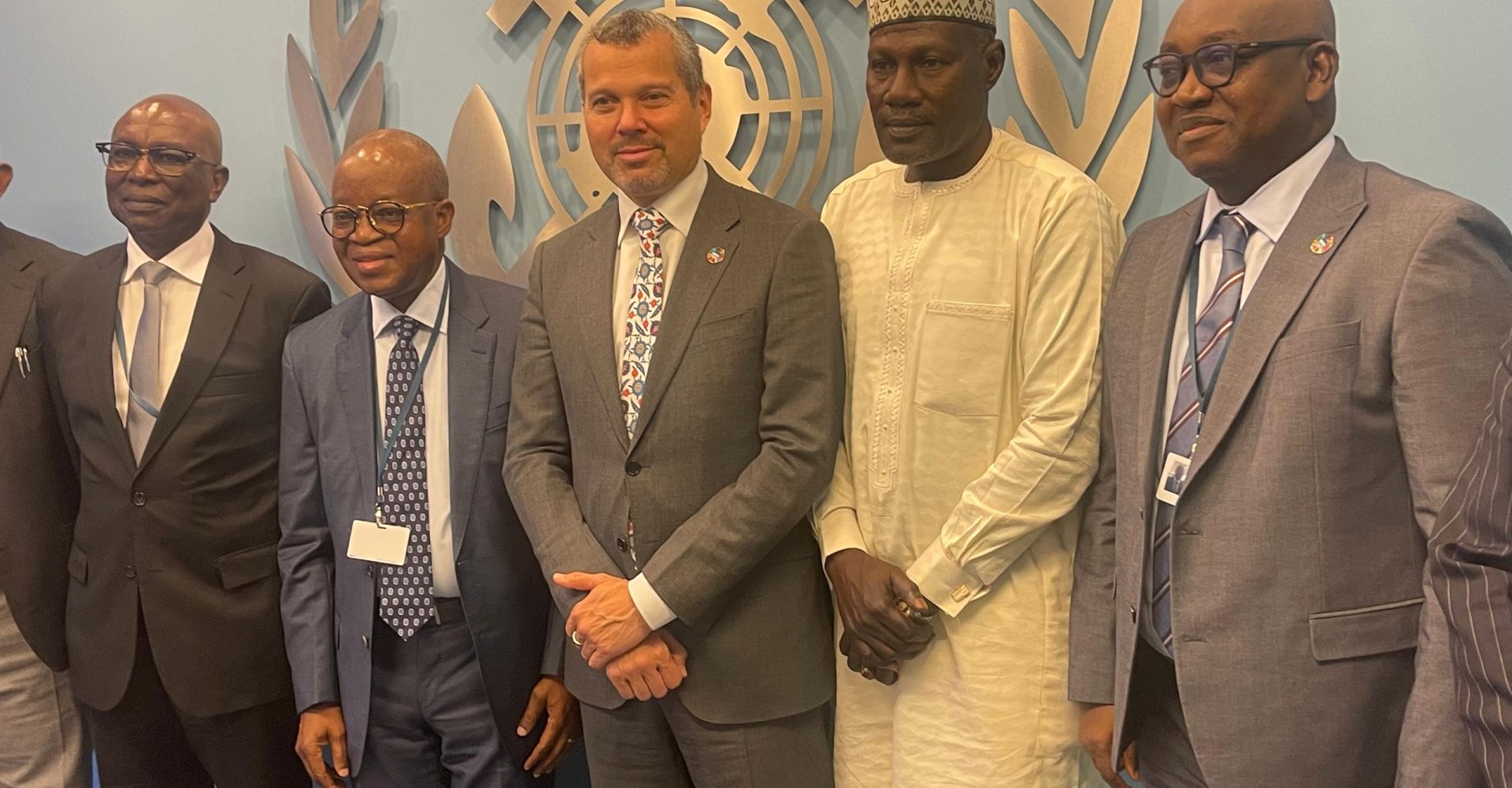In a significant move to enhance Nigeria’s maritime governance, Minister of Marine and Blue Economy, Adegboyega Oyetola, has deposited three Instruments of Accession to International Maritime Organization (IMO) Conventions at the organisation’s headquarters.
This development comes on the heels of Nigeria’s declaration to contest for a seat on the IMO Council.
The deposited instruments are: 2005 Protocol to the Convention for the Suppression of Unlawful Acts against the Safety of Fixed Platforms Located on the Continental Shelf (SUA Protocol 2005);
International Convention on Standards of Training, Certification, and Watchkeeping for Fishing Vessel Personnel (STCW-F), and Protocol Relating to Intervention on the High Seas in Cases of Pollution by Substances Other Than Oil (Intervention Protocol 1973).
These instruments demonstrate Nigeria’s commitment to aligning with international maritime standards, ensuring maritime safety and security, and promoting sustainable marine practices.
Oyetola emphasized Nigeria’s dedication to strengthening legal instruments to grow its maritime sector.
IMO Secretary-General, Arsenio Dominguez, commended Nigeria’s efforts, encouraging continued momentum by securing presidential assent to additional key conventions.
He assured Nigeria of IMO’s technical cooperation and capacity-building initiatives to ensure successful implementation.
Oyetola requested tailored technical cooperation under the Integrated Technical Cooperation Programme (ITCP) to enhance Nigeria’s compliance with IMO conventions and improve maritime governance.
This collaboration aims to promote maritime safety, security, and environmental protection.
Three more Instruments of Accession signed by President Bola Tinubu are undergoing processing for deposit.
Nigeria’s accession to these critical IMO instruments underscores its steadfast commitment to global maritime standards.
This development is expected to boost Nigeria’s maritime governance and align its practices with international standards.
As Nigeria seeks to become a major player in the global maritime industry, strengthening its legal framework is crucial for growth and development.









Comment here